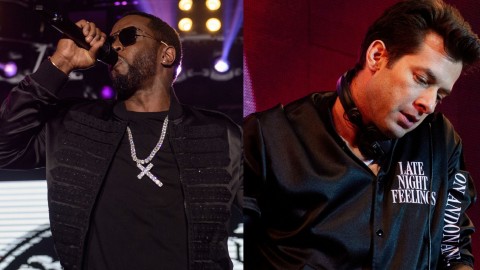
I’ve a confession to make.
In 2017 I wrote an article for local Bristol paper B 24/7 and in it I expressed ambivalence about the decision to change Colston Hall’s name. I spoke about the need for our education system to tell the truth about colonialism and its continued ramifications. I feared the removal of the name was mostly an optical gesture and the history might be swept under the carpet.
Reading it back, I can’t help but cringe. It’s the same argument used by colonial apologists, though my stance strongly differs from theirs. I didn’t want the name change to be an excuse for lazy liberals to claim the hard work was done. Staunch nationalists, however, fear change because they don’t wish the ‘greatness’ of Great Britain to be questioned.
Then Sunday the seventh of June 2020 happened: Edward Colston’s statue, pulled down then pushed into the harbour with a cartoonishly satisfying splash. How can you not feel exhilarated watching this textbook-worthy moment unfurl in real time? It will go down with the incarnation of St Paul’s Carnival, the Tesco riots and the Bristol Bus Boycott as Bad Ass Moments in Bristol History.
I've never been prouder to be Bristol City Poet & to offer a poem to my adopted city than I am today. This piece is called Hollow and I hope you like it. I've captioned it and everything!
Rust in shame, Eddie. pic.twitter.com/LtoyXVmi99
— Vanessa Kisuule (@Vanessa_Kisuule) June 8, 2020
We can’t falsely conclude that Bristol is a social utopia, though. A 2018 Runnymeade Trust report showed that Bristol is the most segregated core city in the UK. But even as I scold myself for romanticising a place with its fair share of issues, I allow myself to feel excited. Amongst the harrowing news cycle of late, Colston’s toppling was a moment of blissful catharsis.
The statue has been repeatedly petitioned against, defaced and denounced as a dark stain on the city’s landscape. Still, it stood unchallenged. People got tired with mealy mouthed petitions and lobbying. Those who wish political change to be a soft-footed affair are either naive or all too cushioned by privilege to understand the means of change-makers.
In 1963, black Bristolians fought for their employment rights by refusing to use the buses and bringing the system to its knees. A knotty mass of persistent suffragettes bombed buildings and endured countless arrests so (some) women could vote. We stand on the shoulders of strategic agitators. My City Poet role is appointed by and paid for by the City Council so I am far from an anarchist. But Sunday’s events show what people-powered change looks like unencumbered by the sludge of bureaucracy.

Still, this isn’t a panacea for the ills committed against black people. Police brutality is just one thread in a web of despicable subjugation. We are disproportionately affected by COVID-19, less likely to be tested and receive treatment. BBC’s Sitting In Limbo illustrates the heinous prejudice against Windrush citizens. We can’t be complacent simply because Colston’s statue is now swimming with the fishes.
But our cultural iconography speaks to who we are and who we hope to be. Over 10,000 people at the Black Lives Matter march spoke unequivocally: Edward Colston does not represent us moving forward. Though his historical and financial mark is indelible, the portrayal of him as ‘wise’ and ‘virtuous’ doesn’t have to remain so.
Now we’re left with an empty space. Who could fill it? Some great suggestions are making the rounds. The first black ward sister hired in Bristol, Princess Campbell? Leader of the Bus Boycott Paul Stephenson? Co-founder of St Paul’s Carnival, Roy Hackett? Others are calling for a rotation of commissioned art work to be displayed where Colston once loomed.
I’ve observed a marked difference in how we celebrate cultural figures in Britain. Take for example this mural on Campbell Street in St Pauls. It’s an arresting artwork in a fitting part of the city. But murals are easily painted over and tend to remain for months or years whilst statues can hold sway for centuries.
The insidious notion is that black history is alternative and peripheral. Why do our figures not deserve the majestic permanence of a statue? But perhaps there’s an honesty to commemorative art that can and does change with the times. The megalomania of statues is a relic from the iron rule of power-hungry aristocrats. Today, we claim to pride ourselves on democracy and diversity, the integral worth of every human regardless of their social status.
What good is it to immortalise someone in bronze, to imply they are beyond reproach or revision? We can be more imaginative in how we shape collective memory, erect less pompous statues and more art that compels the viewer to interact, question and reflect. Statues tower over us. They assume authority, indestructibility, a story with a full stop. But the story, as we know, goes on. It’s high time civic art spoke to this maddening and beautiful ellipsis, the constant surge of time and change and progress.
The post An exclusive essay from Bristol City Poet Vanessa Kisuule: “Edward Colston does not represent us” appeared first on NME Music News, Reviews, Videos, Galleries, Tickets and Blogs | NME.COM.







